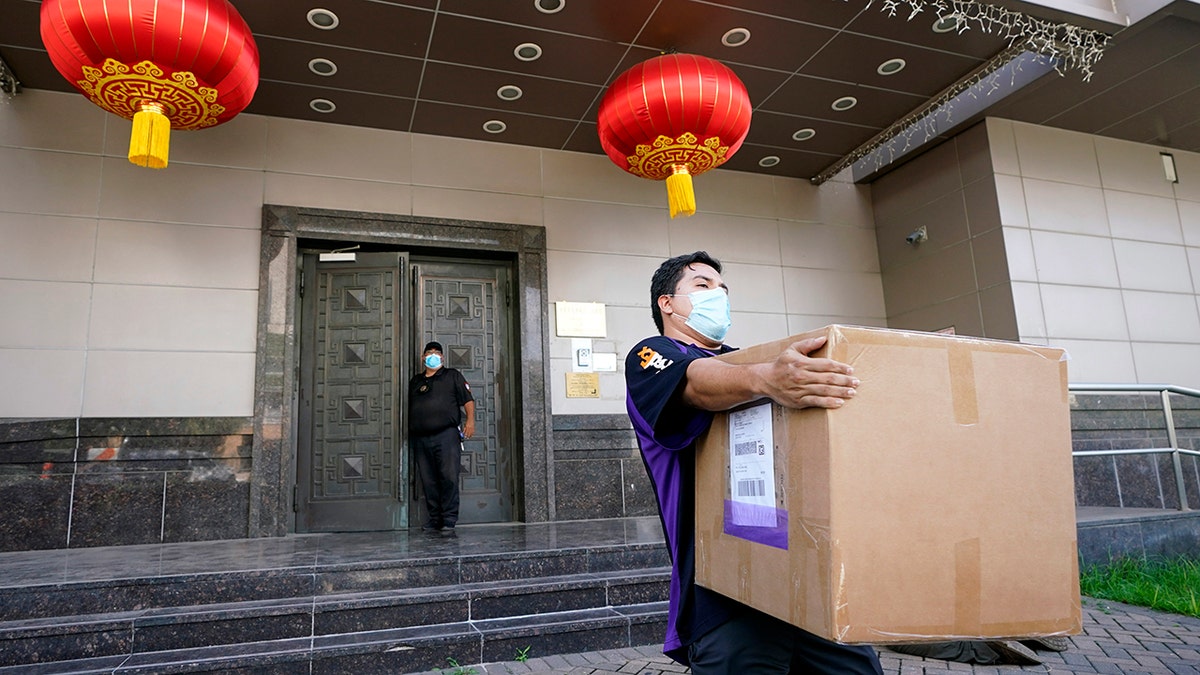Fox News Flash top headlines for August 26
Fox News Flash top headlines are here. Check out what's clicking on Foxnews.com.
When the U.S. government ordered the closure of Houston's Chinese consulate in July, it also directed Beijing to remove military researchers after uncovering an intelligence operation to collect scientific research from American universities.
According to The Wall Street Journal, which first reported on the July 21 order on Tuesday, it was the result of months of rising concern within the Trump administration over Chinese intentions.
TRUMP ADMINISTRATION CONSIDERING LABELING CHINA'S OPPRESSION OF UIGHUR MUSLIMS A GENOCIDE: REPORT
Court documents filed in related cases highlighted Chinese postgraduates in fields such as biomedicine and artificial intelligence who had hidden their active-duty statuses with the People’s Liberation Army.
While investigations into exactly what happened are still in "early stages," the Journal notes that interactions between researchers and Chinese diplomats served as a catalyst for the closure of the Texas consulate.
One red flag for the U.S. was Chinese diplomats' reactions following a May decision to restrict future visas for such researchers.

A FedEx employee removes a box from the Chinese Consulate Thursday, July 23, 2020, in Houston. (AP Photo/David J. Phillip)
Amid questioning by the FBI, officials began to hurriedly extract the researchers from the country, instructing them to wipe their electronic devices.
Discussions had allegedly already taken place in President Trump's administration regarding potentially closing a consulate to counter previous Chinese action that jeopardized U.S. national security.
After the Houston consulate was shuttered, China retaliated by closing the U.S. consulate in Chengdu.
China has four remaining consulates in the country as well as an embassy in Washington, D.C. The U.S. also has four remaining consulates and an embassy in mainland China.
China has vehemently denied accusations of intellectual property theft, and China's Foreign Ministry said its diplomats “have never engaged in activities incompatible with their status.”
The Department of Justice, however, has charged four Chinese researchers with visa fraud.
Notably, prior to the president's May order, the State Department had very limited authority to deny visas to foreign scholars unless they sought to work on controlled or classified research.
More recently, the White House has restricted telecommunications firm Huawei Technologies Co. from obtaining U.S. components, laid the groundwork to ban Chinese social media video app TikTok, and sought to end Chinese government programs that fund research in America.
The Journal said the president's order "appeared to startle China," which sent some of its military researchers back on a flight intended to carry students home amid coronavirus-related travel restrictions.
Since June, the FBI has spoken with approximately 50 researchers in 30 cities who they believe are affiliated with the Chinese military.
CLICK HERE FOR THE FOX NEWS APP
Their interviews have purportedly revealed a "pattern of misconduct" that justifies escalating countermeasures.
"The United States wants an open and constructive relationship with China, but achieving that relationship requires us to vigorously defend our national interests," Trump said in a May 29 speech. The Chinese government has continually violated its promises to us and so many other nations."






